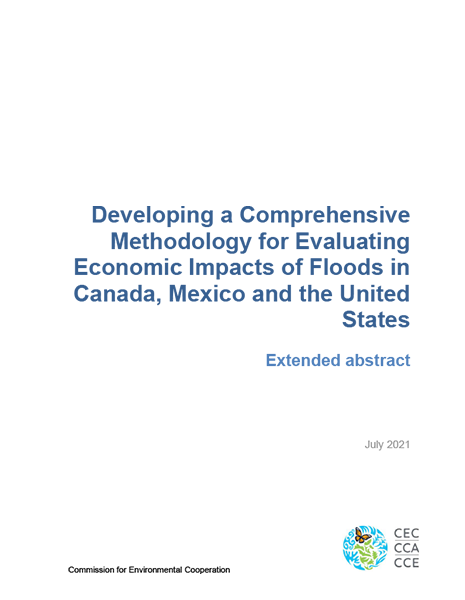Developing a Comprehensive Methodology for Evaluating Economic Impacts of Floods in Canada, Mexico and the United States
Extended Abstract
Developing a Comprehensive Methodology for Evaluating Economic Impacts of Floods in Canada, Mexico and the United States
Extended Abstract
Description
Assessing the true economic costs of floods is central to our ability to address their impacts, allocate adequate resources for monitoring and preparedness, assess their changes in frequency and severity over time, and aid community resilience to them. Considerable variability exists in Canada, Mexico, and the United States in the choice and implementation of methods used at national and sub-national levels for estimating direct damages and indirect losses caused by floods.
This variability leads to information gaps when prioritizing development investments for infrastructure renewal, institutional development, or community enhancements, among others. This paper provides an overview of the range of approaches used in the three countries and analyzes their strengths and weaknesses. It then proposes a comprehensive, inclusive accounting methodology for costs related to floods, which has been developed in close collaboration with various stakeholders and domain experts. Insights into potential challenges for implementing this methodology across the three countries are discussed, particularly as they relate to data availability, access, quality, and spatial coverage. We recommend enhanced data and metadata gathering and storage in an information warehouse for timely dissemination and, in collaboration between government agencies and the research community, also recommend further consideration of the definition for “extreme flooding” to incorporate hydrological, societal, and economic thresholds.
Additional Information
